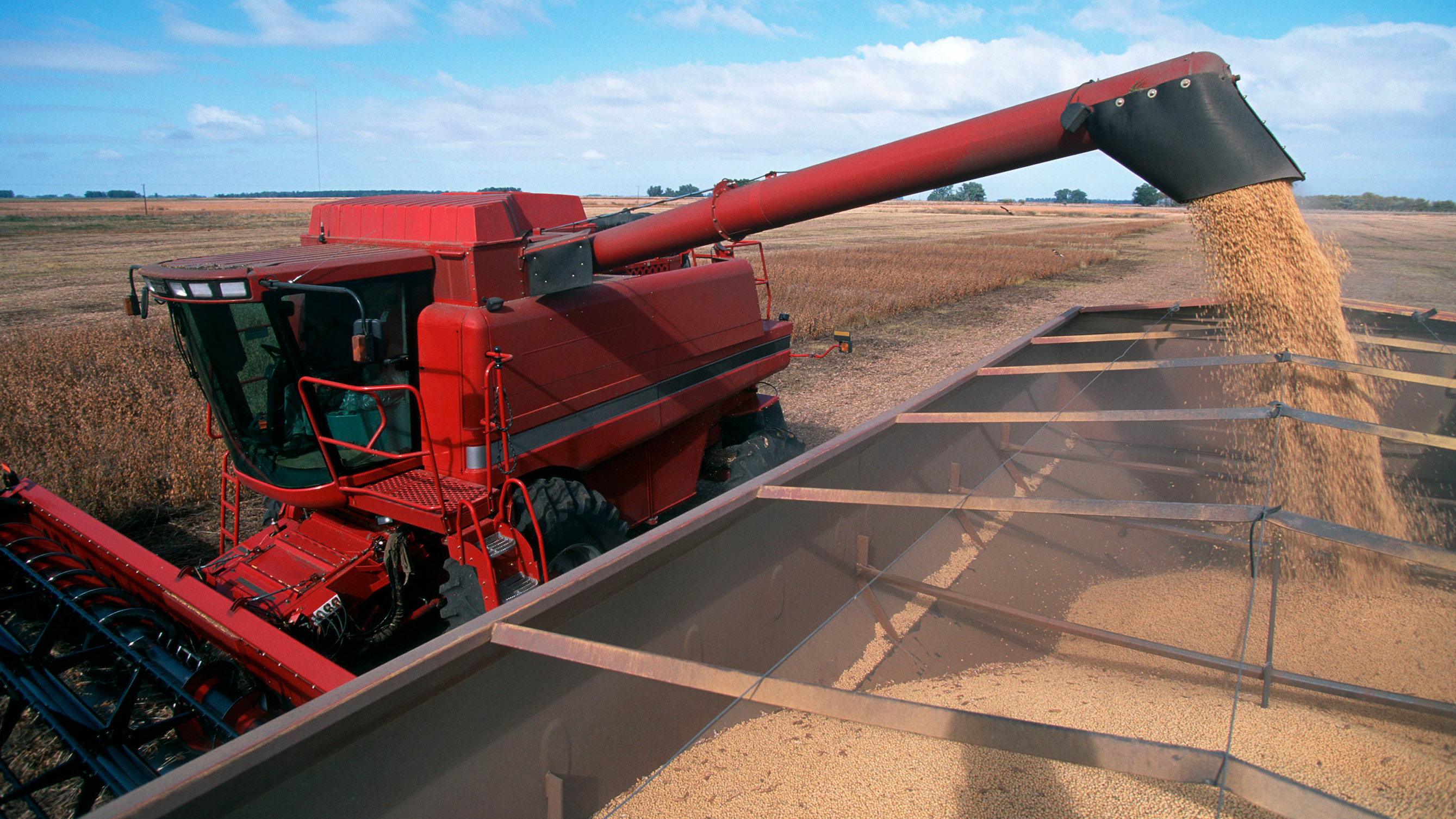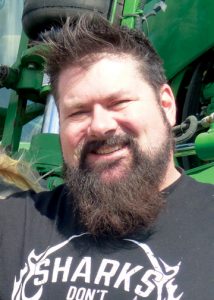Agricultural commodity groups have the power to impact the economy, influence critical legislation and inspire market trends, all in the service of supporting farmers, landowners and business owners.
Meet Ron Kindred, a farmer from Atlanta, Illinois, who also serves as vice chairman of the Illinois Soybean Association. Some people think they don’t need to join a commodity group because they pay into different checkoffs, but what you may not realize is how these groups can positively impact our farms and our everyday operations. Organizations such as the Illinois Soybean Growers (ISG) provide a platform where farmers can be heard and work to increase profitability while protecting the freedom to operate through legislative advocacy, public policy initiatives and education.
ISG and the Illinois Soybean Board (ISB) are two separately funded organizations housed under the Illinois Soybean Association. ISG and ISB are farmer-focused, striving for achievement in every part of the soy sector. However, ISG relies solely on voluntary paid memberships. ISB is funded through the checkoff and those funds can be used for communication and education only. Advocating and lobbying for critical policy work affecting farmers and agriculture are prohibited.
Illinois soy producers created ISG as a means to positively influence policy and regulatory matters at both the state and national level. From federal trade issues to supporting biodiesel, ISG works every day to make a difference in state, national and global agriculture.
What follows is our Q&A with Ron Kindred of ISA:
Rob Sharkey (RS): Ron, why did you join the Illinois Soybean Growers?
Ron Kindred (RK): I wanted to join an organization that protected my family’s interests and be a part of the policy-making process. I wanted to expand my knowledge on soybean-specific issues and play a role in which I am part of the solution instead of just complaining about the problem.
RS: How long have you been a member of the Illinois Soybean Growers?
RK: I joined the Illinois Soybean Association 30 years ago. I have been a director on the Illinois Soybean Growers and Illinois Soybean Board for 17 years and am finishing my second year as vice chairman. I represented Illinois as a director for nine years on the American Soybean Association Board, serving four years on the Executive Committee. I’ve had opportunities to lobby in Springfield and Washington, D.C. and I am constantly amazed at the impact we have had.
I was there in person when the Illinois General Assembly unanimously passed the first biodiesel tax credit, and actively lobbied for the recently passed legislation that ramps up the credit from a B11 to B20 blend. But I would say some of the most important wins over the years have been in stopping onerous regulations from getting enacted, something that would not have happened if it weren’t for groups like this.
RS: How are the Illinois Soybean Growers different from the checkoff? Are my checkoff funds used as political contributions?
RK: The Illinois Soybean Growers is a 100% voluntary membership organization. Our membership costs go towards advancing issues that allow us to continue to produce with as little regulatory interference as possible, as well as preventing harmful legislation from becoming law. The Illinois Soybean Board oversees the checkoff funds used for research and education only, completely separate from the membership fund. Checkoff funds are not allowed to be used for any type of advocacy or political contributions.

RS: Why is it so important as a farmer or agriculture business to join commodity groups like the Illinois Soybean Growers?
RK: I believe it is extremely important to have your voice heard from your own perspective. This helps with the checkoff investments in education, but especially for policy direction of the association. We need both agribusinesses’ and farmers’ input to make the best decisions on research, education and legislation going forward. I know we can achieve more when we are working together for a common purpose.
RS: How does growing the Illinois Soybean Growers membership base advance the conversations around agriculture and policy?
RK: There is definitely strength in numbers. The more people we have lobbying in Springfield and D.C., the more impactful we become. We are extremely influential now but with more members we can do so much more. Illinois is the top crop-producing state in the nation and one of the largest in the world. It is imperative that Illinois farmers are at the table when legislation relating to agriculture is being negotiated. We need to educate our legislators on the important role we play in providing high-quality, affordable food to feed the world. Our legislative action center, Voice for Soy, gives our members direct access to communicating with elected officials where they can make calls and send letters to advance policy initiatives.
RS: Who should join Illinois Soybean Growers?
RK: All soybean farmers and agribusinesses, and quite frankly, anyone who cares about the future of agriculture and wants to make a positive impact. What a powerful organization we can be with everyone’s participation!
RS: How much does it cost to become an Illinois Soybean Grower member?
RK: We recently reduced our annual membership down to $75 (from $150) to make it more affordable for folks to join and it has been worth every dollar!

Become an Illinois Soybean Grower member today by going to the organization’s website, ilsoygrowers.com, or by contacting Ashley Barry at 309-660-5492, [email protected]





